The payment for homeowners who provide accommodation to people fleeing the Ukraine war looks set to be cut as the Government considers the future of the scheme.
Currently, there are just over 15,000 hosts providing housing to around 36,000 Ukrainians, and who receive monthly payments of €800.
However, ministers have signalled changes are on way to the Accommodation Recognition Payment scheme.
As Russia's invasion of Ukraine began three years ago, John Connors looked on in horror as he watched the events unfold on TV from his cottage in Borrisoleigh, Co Tipperary.
"It was clear to me a humanitarian disaster was about to take place," the 67-year-old said.
He decided to act.
"I carry the philosophy with me that I can’t change the world, but I can maybe help one person," he said.
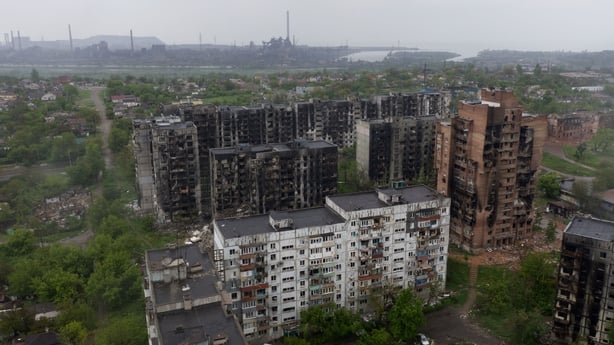
He contacted charities and told them he had spare rooms in his home and could take in Ukrainians who were fleeing.
In September 2022, a couple in their 40s - Yulia and Andriy - landed on the doorstep of his 150-year-old cottage.
They had fled their home in Mariupol days into the war after their apartment building was bombed. They had lived there all their lives.
Now, two-and-a-half years on, sitting in the kitchen of the Tipperary home, they said they are grateful for the help and shelter they have received.
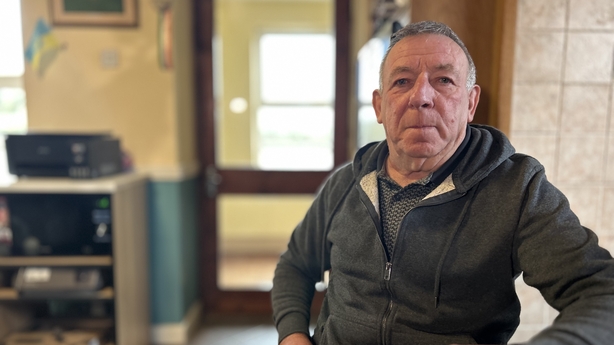
John has a "big heart", they say before adding, "we are very happy to live here".
He is one of the current 15,500 hosts accommodating a total almost 36,000 Ukrainians, under the State’s Accommodation Recognition Payment scheme.
It means he receives €800 per month, tax free, in return for providing a place to stay.
The payments had initially been set at €400 but was doubled in late 2022. In total, €239 million has been paid over since the scheme’s introduction.
Mr Connors said he was motivated by humanitarian and not financial reasons.
"If that (payment) has to stop in the morning, Andriy and Yulia would still be here in this house, that's the perspective I have come to this," he said.
He added: "I've got to 67 years of age, and I've made loads of decisions in my life ... but I have to say that my experience of hosting people from Ukraine has been one of the most beneficial things that I've ever done in my life."
The €800 monthly payment goes to help with household bills, or "the cost of living", he says.
He has also used it to finance the publication of two books on the war, which he said, is to try raise public awareness of what’s going on in Mariupol.
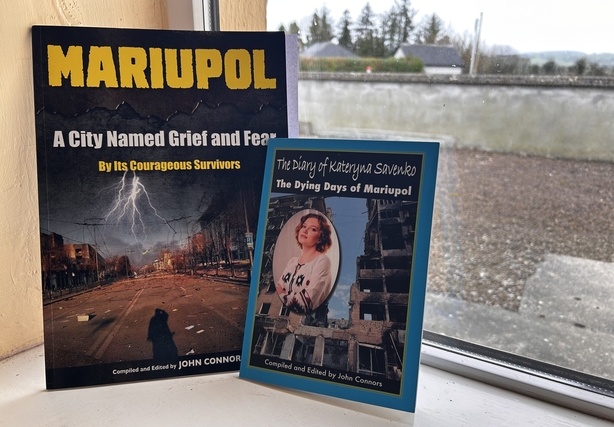
Changes on the way
But changes to the scheme are on the way. Minister for Integration Norma Foley and Minister for Justice Jim O’Callaghan have both signalled a decision on the scheme’s future is due to be made shortly.
It is expected that the scheme will be extended but that the €800 monthly payment could be cut to €600.
Angie Gough is the co-founder of Helping Irish Hosts - an organisation that supports hosts throughout the country and their Ukrainian guests.
"The thousands of hosts that stepped up ... I get goosebumps thinking of the response that we have seen.
"We're known as the island of the 100,000 welcomes. There has literally been 114,000 welcomes for people from Ukraine," Ms Gough said.
She added that these are stressful times as they await the Government’s move.
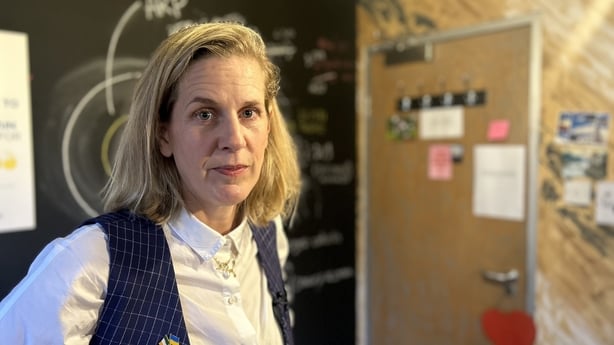
"It’s been uncertain times for people.
"Right from the beginning of this, and each time people don't hear what's coming down the line, or don't get a clear indication about what's about to happen next, it just makes things makes people feel more anxious," Ms Gough said.
"We need a clear messaging around what happens next for people."
She recognises it is time for a change to scheme - an "evolution" as she calls it - but warns against immediate and drastic changes.
Ms Gough wants the scheme to continue in its current form for another 12 months.
"We want the payment to be extended for another year at its current level to give certainty to people while we plan a responsible transition.
"But really what we're calling for is that the thing that we've built over the past three years ... that we find a certain future for that response, the hosting community."
She said the €800 monthly payment has been "crucial" to sustaining the almost 40,000 Ukrainians in homes.
"73% of hosts rely on the payment, they can keep hosting because the payment is there," Ms Gough said.
We need your consent to load this rte-player contentWe use rte-player to manage extra content that can set cookies on your device and collect data about your activity. Please review their details and accept them to load the content.Manage Preferences
Critics
However, the scheme does have its critics, with Sinn Féin urging the Government to end the scheme in its current form when its due to expire at the end of next month.
Sinn Féin Spokesperson on Home Affairs Matt Carthy claims the scheme was "commendable" when set up initially, but is now having adverse effects on the rental market.
"Particularly in rural communities and in places where rents will be traditionally lower, landlords are now receiving a payment from the Government - a tax-free payment - of €800 per month.
"So, in real terms, that's worth about 1,600 euros then ... and we're seeing evidence this has distorted the rental market.
"It's also leading to tensions within community because it's fundamentally unfair. There is no means test applied.
"So, you could have someone from Ukraine who might be on a relatively good income, but somebody from anywhere else in the world who happens to be in Ireland, including Irish citizens, could be on the exact same income, and isn't able to avail of this scheme," he said.
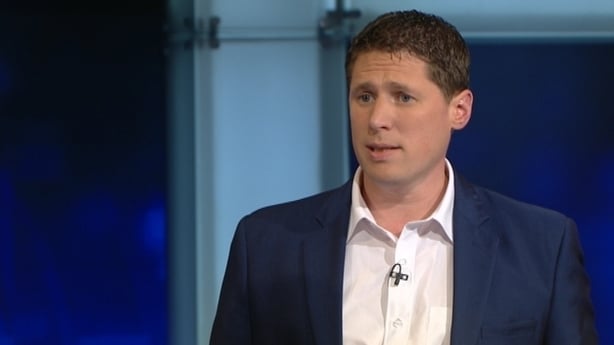
Mr Carthy added: "So that's creating and problems that we could, quite frankly, do without."
All agree though, that whatever the Government decides it should not result in a cliff edge where the current 36,000 Ukrainians in the scheme suddenly find themselves facing homelessness.
Yulia and Andriy say they want to stay in Ireland, adding they no longer have a home in the city they left. They both now work in a local factory.
Ireland, they said, is now their second home for them, "and maybe the first".
Mr Connors too said he has benefitted.
"It opened up a whole new world, and it's great to witness life being recreated. People come back from the brink of disaster," he said.
He is adamant that whatever changes are brought in, Yulia and Andriy can stay for as long as they like.







